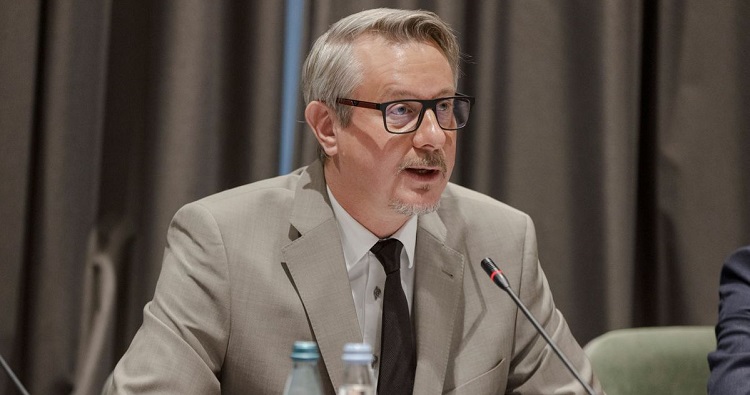EU Ambassador Hartzell: April 19 agreement represents "roadmap" for Georgia's European integration

The April 19 EU-mediated agreement put an end to a 6-month political crisis in Georgia.
Photo: EU Delegation to Georgia
EU Ambassador to Georgia Carl Hartzell has said that the April 19 EU-mediated agreement remains a "roadmap" for Georgia's European integration, pointing out that the agreement had helped to end a "toxic boycott of the Parliament" after the 2020 elections.
Ambassador Hartzell expressed his disappointment over the fact that the agreement, signed by 147 out of 150 Georgian MPs at different times, was not transformed into a "joint action in a lasting manner."
However, he noted, some reforms cited in the agreement have been implemented, while others are yet to be finalized.
I would, however, like to underscore that these reforms are about the quality and standards of elections, about the rule of law and about the political decision-making culture, all of which are fundamental to any democracy, said the ambassador.
Ambassador Hartzell emphasized that the agreement may not be the only way to fulfil Georgia's European aspirations, but it offers "one credible way."
If not that way, then what way, is the question that begs an answer. The European Union will always stand by Georgia´s side, but the consolidation of the country must be borne and owned by Georgia and by the Georgians, he added.
Georgian opposition parties took to the streets following the 2020 parliamentary elections, claiming the elections had been fabricated and demanding snap elections.
The six-month political crisis was eventually resolved by the April 19 EU-mediated agreement.
The ruling Georgian Dream party announced its withdrawal from the agreement in July, saying that the agreement ‘had completed its mission.’
On the other hand, the United National Movement, the biggest opposition party in Georgia, joined the agreement in September, over four months after refusing to do so.
 Tweet
Tweet  Share
Share